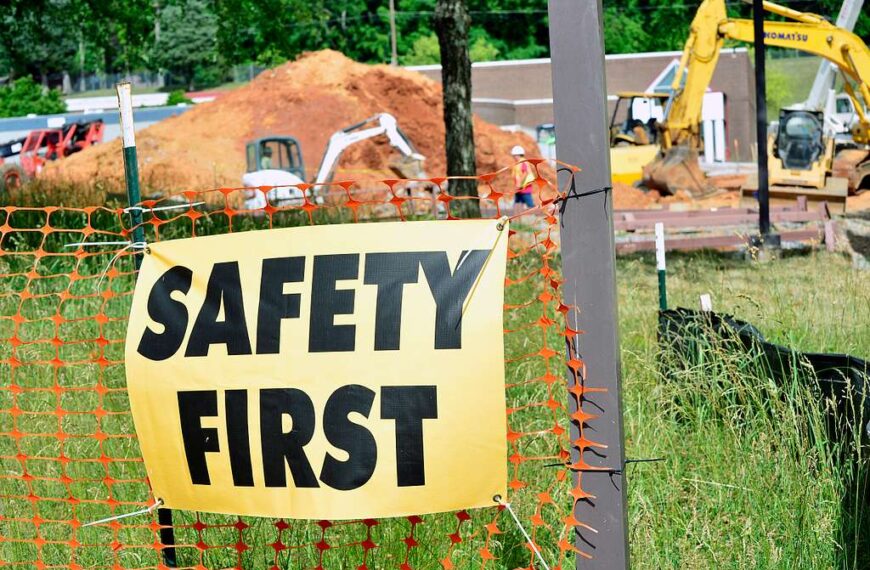Introduction
Meritocracy is the idea that individuals succeed based on talent, effort, and achievement has long been held as the ideal model for a fair and just society. It suggests that hard work and ability alone determine a person’s success, regardless of their background. While this concept is appealing, in practice, it overlooks the structural inequalities that shape access to opportunities.
What Are Structural Inequalities?
Structural inequalities refer to the systemic and embedded disparities in society that advantage some groups while disadvantaging others. These inequalities are built into institutions such as education, employment, healthcare, and the legal system, shaping people’s opportunities and life outcomes based on factors like socio-economic status, race, gender, and disability. Unlike individual discrimination, which occurs on a personal level, structural inequalities are often maintained through long-standing policies, practices, and social norms that create barriers for marginalised groups. For example, underfunded schools in poorer areas limit access to quality education, making it harder for students from low-income backgrounds to achieve the same success as their wealthier peers. Similarly, wage gaps and lack of career progression opportunities reinforce gender and racial inequalities in the workplace. Because these disparities are deeply ingrained, addressing structural inequalities requires systemic change through policy reforms, investment in marginalised communities, and inclusive practices that promote equal opportunities for all.
For individuals from lower socio-economic backgrounds, women, and other marginalised groups, the reality is that systemic barriers make it far more difficult to achieve success than meritocracy would suggest. This article explores the flaws in meritocracy, particularly in relation to privilege, and explains why it is an unfair system for those who start from disadvantaged positions.
Understanding Meritocracy and Privilege
The principle of meritocracy assumes a level playing field where everyone has equal access to opportunities. However, this assumption ignores the significant advantages that privilege provides. Privilege refers to unearned benefits or advantages that certain groups receive due to factors such as race, gender, socio-economic status, or education.
For example, someone born into a wealthy family benefits from access to high-quality education, financial stability, professional networks, and career opportunities that are not available to those from poorer backgrounds. Similarly, white men, on average, experience fewer barriers in professional settings compared to women or ethnic minorities, who may face discrimination, bias, and fewer opportunities for advancement.
Because meritocracy assumes that success is solely based on individual effort, it ignores these structural inequalities and reinforces the idea that those who struggle simply did not work hard enough. This not only disadvantages marginalised groups but also perpetuates inequality in society.
A powerful way to visualise privilege and the flaws of meritocracy is through the “Privilege Race” video below. This social experiment demonstrates how individuals receive a head start in life based on factors like family wealth, education, race, and support systems. Participants stand in a line and take steps forward if they have certain advantages, such as private schooling or financial stability, while others remain behind due to systemic disadvantages. The video highlights how success is often influenced by circumstances beyond personal effort.
The Unfairness of Meritocracy for Lower Socio-Economic Backgrounds
1. Unequal Access to Education
Education is often described as the great equaliser, yet in reality, access to quality education is deeply unequal. In the UK, children from wealthier families are more likely to attend high-performing schools, receive private tutoring, and have parents who can invest in extracurricular activities. By contrast, children from poorer backgrounds often attend underfunded schools, may have fewer educational resources at home, and are more likely to experience disruptions such as food insecurity or unstable housing.
According to the Sutton Trust, students from disadvantaged backgrounds are significantly less likely to gain admission to top universities, which in turn limits their career opportunities. If meritocracy were truly fair, all students would have the same access to high-quality education, yet the reality is that a child’s postcode and family income remain some of the strongest predictors of academic success.
2. Financial Barriers to Career Advancement
Even for those who excel academically, financial barriers continue to restrict access to opportunities. Many prestigious careers require unpaid internships, which wealthier students can afford to take, while those from low-income backgrounds may need to work paid jobs to support themselves. This puts poorer students at a disadvantage, as they are unable to gain the same level of work experience as their privileged peers.
Additionally, networking and personal connections often play a crucial role in securing high-paying jobs. Those from privileged backgrounds may have parents, family friends, or mentors who can provide guidance and job referrals, while those without these connections must navigate the job market alone. This reinforces class divisions and ensures that top positions remain within elite circles.
Why Meritocracy Fails Women
1. Gender Bias and Workplace Discrimination
Despite significant progress in gender equality, women continue to face discrimination in the workplace. Studies have consistently shown that women are paid less than men for the same work, struggle to break into leadership positions, and experience workplace bias.
For example, women are often perceived as less competent or less committed to their careers than men, particularly if they take time off for maternity leave. This bias affects hiring decisions, promotions, and salary negotiations, making it harder for women to advance in their careers.
If meritocracy were truly fair, women would be promoted and paid based on their abilities and achievements alone. Instead, they must navigate additional barriers that men do not face, proving that the system is not as equal as it claims to be.
2. The ‘Motherhood Penalty’
One of the most significant disadvantages women face is the motherhood penalty, which are the career setbacks women experience when they have children. Women are more likely than men to take career breaks or work part-time due to caregiving responsibilities, which affects their earning potential and career progression.
Additionally, employers often assume that mothers are less committed to their jobs, leading to fewer promotions and opportunities. In contrast, fathers are often seen as more responsible and capable once they have children, leading to a fatherhood bonus where men actually receive higher salaries after becoming parents
Since meritocracy suggests that hard work leads to success, it ignores the additional challenges that women, particularly mothers, must overcome. As a result, women are unfairly penalised in ways that are not accounted for in a supposedly meritocratic system.
Why Meritocracy is Unfair to LGBTQ+ Individuals
1. Workplace Discrimination and Bias
Although legal protections exist against workplace discrimination, LGBTQ+ individuals still face significant challenges in professional environments. A study by Stonewall found that nearly one in four LGBTQ+ employees in the UK have experienced discrimination at work, and many feel unable to be open about their identity due to fear of prejudice.
If meritocracy were truly fair, employees would be judged purely on their skills and performance. However, LGBTQ+ workers often face bias in hiring, promotion, and pay. Research also shows that LGBTQ+ individuals are underrepresented in leadership positions, partly because they encounter barriers that make career progression more difficult.
2. Economic Disadvantages and Family Support Gaps
Many LGBTQ+ individuals, particularly those who are estranged from their families due to their identity, lack the financial and emotional support systems that others take for granted. This can make pursuing higher education, relocating for job opportunities, or navigating career challenges significantly harder.
Without access to the same financial safety nets as their straight, cisgender peers, many LGBTQ+ individuals face additional struggles in their professional journeys. Meritocracy ignores these disparities and assumes that everyone starts with the same support system, when in reality, many LGBTQ+ people are at an economic disadvantage from the outset.
The Disadvantages Faced by Marginalised Groups
1. Racial and Ethnic Inequalities
In the UK, racial and ethnic minorities often experience systemic discrimination in education, employment, and career progression. Research has shown that people from Black, Asian, and minority ethnic (BAME) backgrounds are less likely to be hired for jobs despite having the same qualifications as white candidates.
A study by the University of Oxford found that ethnic minority applicants had to send 60% more job applications to receive the same number of call-backs as white applicants. This demonstrates that success is not based purely on merit but is influenced by racial biases that affect hiring decisions.
2. The ‘Glass Ceiling’ Effect
Even when ethnic minorities secure jobs, they often face the glass ceiling effect, where they struggle to progress into senior leadership positions. A lack of mentorship opportunities, workplace discrimination, and unconscious bias all contribute to the underrepresentation of minorities in top roles.
For example, the Parker Review found that more than half of FTSE 100 companies had no ethnic minority representation on their boards. If meritocracy truly existed, ethnic minorities would be represented at all levels of business, yet the data suggests that structural barriers prevent fair career advancement.
Conclusion
The idea of meritocracy is appealing because it suggests that success is based on individual ability and effort. However, in reality, privilege and systemic inequality play a significant role in determining who gets ahead. For those from lower socio-economic backgrounds, women, the LGBTQ+ community, and ethnic minorities, the barriers to success are far greater than meritocratic ideals suggest.
To create a truly fair society, we must recognise that meritocracy alone is insufficient. Instead, policies such as fair pay, access to quality education, mentorship programmes, and workplace diversity initiatives are needed to level the playing field. Only by acknowledging and addressing privilege can we move towards a system where everyone has a genuine chance to succeed.








